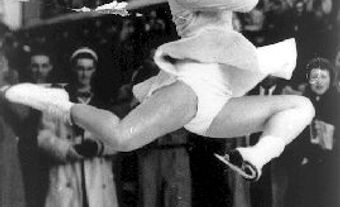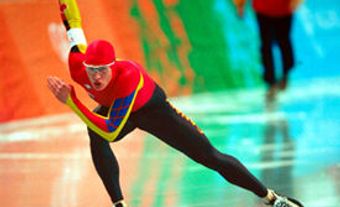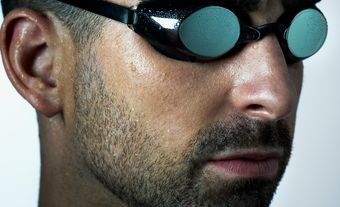This article was originally published in Maclean’s magazine on July 14, 2003. Partner content is not updated.
Top Athletes Need More Support
EVERY GOOD celebration comes with a price. The larger-than-expected bar bill at the end of the night, the cold dawn of a living room filled with empties and dirty dishes, the killer hangover after the champagne buzz. For the Canadian Olympic Committee and organizers of the Vancouver-Whistler bid for the Winter Games in 2010, the collective source of dry throats and throbbing temples is the enormity of the task they've taken on. It's not just the hassle of staging a showpiece event while the world and cranky media representatives look on. Now they have to learn to deal with the burden of a nation's expectations.
Salt Lake City gave Canadians an awful lot to cheer about. A record haul of 17 medals, including feel-good golds in speed skating, men's and women's hockey, and pairs figure skating. But history was not so kind in Montreal in 1976 or Calgary in 1988 - the first two OLYMPICS that Canada hosted. In fact, the Great White North holds the dubious distinction of being the only host country to twice fail to top the podium. And while Canadian sports officials are excited about gaining home advantage for 2010, they are also worried that we might be setting ourselves up for another disappointment. Nobody wants to be a three-time loser.
"When Canadian athletes do well, it's the exception - they survive despite the system," says Marnie McBean, who won three Olympic golds and a bronze, and eight world championship medals, as a mainstay of the Canadian women's rowing team between 1989 and 2000. "Athletes now simply don't get the support they need." Funding for high-performance sports was drastically slashed during the fiscal crunch of the mid-1990s. And while money has been inching back up, sports advocates say the damage to Canada's chances for future success has already been done, even though Salt Lake City temporarily quelled the chorus of dissent that arose after a disastrous Sydney Summer Games in 2000. There, the hosts, in a country with 10 million fewer people than Canada, cleaned up, winning 58 medals, including 16 golds. Canada got just three golds and a total of only 14 medals - eight fewer than in 1996.
The difference, say critics, is money. Australia spends almost four times as much as Canada, in total, on high-performance sports. The United States, Britain, France and most other Olympic powerhouses also spend significantly more per athlete. "When I started competing, I didn't worry about the Australians or the British. Those two countries were easy to beat," says McBean. "Now they're both doing very well in rowing."
The COC last year started targeting funds at sports and athletes with the greatest chances for success. And following the lead of other countries, Canada now offers incentives for winners - $45,000 for Olympic gold, $40,000 for silver, and on down to $10,000 for eighth place. The new standard for inclusion on the Olympic team is a world top-12 finish in an athlete's chosen event, up from 16th. "We believe that Canadians demand results and we've set ambitious targets in order to achieve them," says Mark Lowry, executive director, sports, for the COC. But despite a recent $5-million-a-year funding boost from the federal government, Canada's elite athletes remain poor cousins to their competitors. "We need an additional $30 to $40 million a year to really compete in both the Summer and Winter Games," says Lowry. "That's what it will take just to level the playing field."
So far, there is little indication that governments and corporations are ready to dig that deep into their pockets. And while hopes for a Scrooge-like epiphany spring eternal, the athletes struggle on, feeding their dreams on part-time jobs and drawing money from the Bank of Mom and Dad. "At the beginning of the season, I don't know how I'll make ends meet," says Nicole Forrester, a world top-20-ranked high jumper with aspirations to wear the Maple Leaf next summer in Athens. The 26-year-old from Aurora, Ont., is one of Canada's approximately 800 "senior card" athletes - a designation that comes with an $1,100 a month stipend (the 600 junior or development card athletes get $500 a month). "I live month to month," she says, "waiting for the cheque to come."
This year, Forrester canvassed more than 60 Canadian companies looking for additional financial support. None of them stepped up, although she did ultimately find $15,000 in sponsorship with the help of friends and family - primarily from auto-parts giant Magna International. Next year, she estimates she will need to raise at least $36,000 more to prepare for the Olympics. Like Formula One race cars, high-performance athletes need constant tinkering and tuning; try to economize and you're likely to finish back in the pack with Jacques Villeneuve. "To be able to compete on an elite level, you need to be able to afford athletic therapy, pay your coach and training fees, buy nutritional supplements, travel to international meets," says Forrester. "All of this running around for money is a huge distraction."
Some private fundraising foundations are trying to fill the gaps, appealing to businesses and individual citizens alike for a patriotic emptying of wallets. The See You in Athens Fund, a Toronto-based athlete support group, unleashed a shock campaign last winter, using the type of hard-sell ads usually reserved for the plight of starving children or the indigent. In one, sprinter Leia Ince-Mercer is pictured in a gritty alley holding a cardboard sign reading, "Please help feed my passion." Nearly 70 per cent of Canadian athletes live below the poverty line, the group claims. "We didn't do it to pull at the heartstrings, but I think a lot of people were very shocked to hear that a lot of our athletes struggle to get by. We tend to think they're being taken care of," says Jane Roos, the foundation's founder and executive director.
See You in Athens is aiming to raise $5 million by next summer, and has already begun the process of handing out gifts of between $5,000 and $10,000 to athletes and teams. Roos, who also runs a sports marketing and promotion firm, argues that Canadians have a duty to put their money where their national pride is. "People who care about their kids want role models, they want heroes. And when our athletes do well, they give back to society," says Roos. "I don't think any of them should have to have a part-time job."
What's not clear, however, is whether most Canadians feel the same way. Sure, we're happy enough to fill the bars and streets to cheer on a Donovan Bailey or a winning hockey team, but the warm glow of success quickly fades. Jean Harvey, director of the Research Centre for Sport in Canadian Society at the University of Ottawa, says polls suggest that our most enduring sports-funding priorities remain the local rinks and athletic fields. "In the context of funding," he says, "Canadians are more concerned with grassroots sports. High-performance athletes come second."
Ottawa's recently revamped sports policy tries to steer that course, with the lion's share of new sports money in the last budget - $45 million over five years - going to encourage widespread participation, rather than Olympic dreams. But everyone involved - coaches, athletes, health advocates, politicians - seems to agree that both ends of the system need more money, because today's soccer tykes are tomorrow's World Cup squad. Ultimately, says Harvey, the rhetoric must be backed up with more action. "Things like the two hockey golds in Salt Lake City are magic moments, and our politicians reap the benefits," he says. "But what troubles me is that even if our politicians seem to recognize the need for more funding, they don't seem to be in any hurry to do something about it."
But money is not a panacea for all our sporting ills. Alex Baumann, who won two swimming golds for Canada at the 1984 Los Angeles Olympics and set six world records during his eight-year career, says this country needs to specialize, pouring energy and money into select winter and summer events. "Ultimately, we can't be everything to everyone," says Baumann, who is now the executive director of the government-run Queensland Academy of Sport in Brisbane, Australia. He argues that the basis for Australia's recent success is its emphasis on the long-term development of eight core summer sports. And the creation of a national network of nine training and development centres that offer ready access to equipment, coaches, nutritionists and therapists has made it easier for promising young athletes to reach their full potential. Canada's tattered sports system - most programs don't even have full-time coaches - needs to be rebuilt from the ground up. "We used to be at the forefront of having an innovative, forward-driven system," says Baumann. "But we've failed to keep up with the times."
In the end, that's why Canada's athletic community was running so hard for a successful Vancouver-Whistler bid. The Calgary Games left the country with a legacy of infrastructure - a bobsled track, speed-skating oval, a world-class Nordic centre - that has already paid off in medals. Now, another Olympics is seen as a much-needed catalyst to force government, the public, athletes and sports administrators to start singing from the same hymn book. "Having the Olympics again will provide us with a focus, an opportunity to raise the profile of this issue, a chance to mobilize the entire sports system to lobby for increased funding," says Paul DeVillers, the federal secretary of state for physical activity and sport. "Once the public becomes mobilized the government reacts." In cabinet, the file tends to "fall off the table," he says, because although almost everyone is in favour of more money, there's no perceived urgency.
But the spectre of 16 days in February 2010 going by without O Canada blaring through loudspeakers and the Maple Leaf rising to the rafters might just be enough to spark armchair fans and politicians. And for athletes to do well then, the support for them, the coaches and the sports themselves has to start right now. "There's no point in putting on the best Games in the world," says DeVillers, "if our athletes aren't out there on the ice and snow winning."
Maclean's July 14, 2003

 Share on Facebook
Share on Facebook Share on X
Share on X Share by Email
Share by Email Share on Google Classroom
Share on Google Classroom


